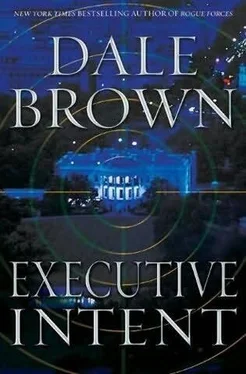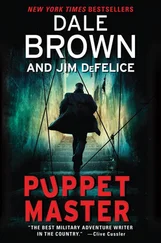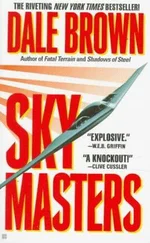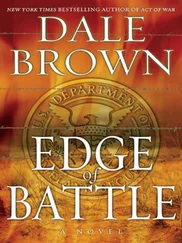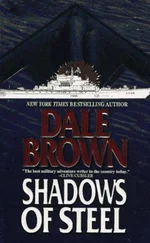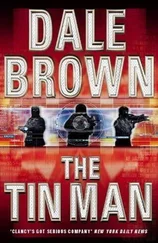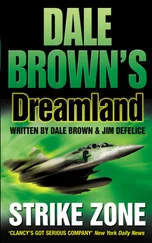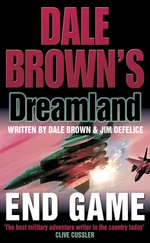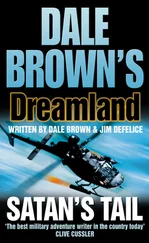Hua looked a little surprised and disappointed. “Ban all antisatellite weapons? That would put us even further behind the Americans in research and development. Is the president considering it?”
“Of course not, General,” Zung said, waving a hand dismissively. “But if the Americans want to do it, we would not discourage them. If we did sign such a treaty, we would continue research and development and prepare to deploy the weapons in the case of any hostilities.” Hua looked relieved. “No, General, the commission was very pleased with the test, and they are taking a very hard look at expanding space and counter-space-weapon technology. Nothing China has done in recent years has riveted the attention of the Americans as much as that launch.”
“That is good to hear, sir.”
“In fact, the president advises me that our other proposal has been approved by the commission,” Zung said. “They want risk-reduction operations to be accelerated so they can request additional funds to expand the antisatellite program before negotiations begin to shut them down. Did you bring the data I requested?”
“Yes, sir,” Hua said, opening his briefcase and extracting a single piece of paper. “The Americans have thirteen Kingfisher weapon satellites in orbit-about half to a fourth of the proposed constellation, we do not know precisely. All but four are fully operational, based on data transmissions we intercept. One satellite makes almost no transmissions, although it appears to be responding to positioning commands. We believe this one’s weapon functions have malfunctioned and were shut down. The Americans will probably send an astronaut from the Armstrong Space Station to attempt repairs soon.”
“That sounds like a good candidate, General,” Zung said. “Will it be in position soon?”
“The timing could not be better, sir,” Hua said. “In five days the American satellite will be within range of our newest DF-21 installation in Taunggyi, Myanmar. That base has the most up-to-date version of the tracking and guidance software, and an improved missile and rocket motor. The launch window will be open for three hours once a day for approximately three days, and then will close for several days again before reopening, so we have a little leeway in case of other unforeseen complications.”
“Excellent,” Zung said. “Operation Shan-dian begins in six days. We will coordinate your operation to coincide with it. Hopefully the Americans will be too distracted by Shan-dian to pay attention to your test.”
“We will be ready, sir,” Hua said.
“Will the Americans detect the launch from Myanmar?”
“Yes, sir, most assuredly,” Hua said. “The Americans have two very good launch-detection systems: the Defense Support Program satellites, or DSP, and their replacement, the Space Based Infrared System, or SBIRS, satellites. SBIR has two components, high and low. DSP and SBIRS-High are designed to detect rocket launches almost everywhere on the planet with great precision and have a modest tracking capability. SBIRS-Low is designed to accurately track rockets and even fast-moving aircraft in flight, predict impact areas, and cue other space, sea-based, or land-based antimissile systems. Fortunately, SBIRS-Low is not fully deployed, so the chance of the Americans tracking a missile with it are extremely low.”
“I do not understand most of what you just said, General,” Zung said, rising to his feet and smiling, “but I trust the Americans will eventually determine that it was one of ours. The president and foreign minister must have an acceptable explanation ready for them. But we are hoping that Operation Shan-dian will distract them enough. Have your forces ready for the final execution order, and good luck.”
ARMSTRONG SPACE STATION
SEVERAL DAYS LATER
Kai Raydon was on his last mile of his twice-daily thirty-minute exercise routine in the daily-room module, which was a combination galley, entertainment center, gymnasium, and computer and crew communications room. He was strapped to an exercise bicycle, which used electric magnets to simulate resistance while pedaling, while at the same time he pushed and pulled on a rowing-style machine that also created resistance for upper-body toning. A vacuum vent above him sucked loose droplets of sweat into the station’s recycling system.
A crewmember from the day shift was waiting his turn to use the machine. “You’re hitting that thing pretty hard this morning, sir,” he commented.
“I’m scheduled to return to Earth in a few days for re-acc,” Kai said. “Re-acc,” or reacclimation, was required of all astronauts who performed long-term tours in space. It consisted of four weeks of rest, along with several medical exams to document any changes in the body resulting from long periods of zero-g such as loss of bone density, muscle deterioration, reduced lung capacity, or radiation exposure. “I’m determined to knock the docs on their butts in surprise.”
“Go get ’em, sir.”
Kai wore a pair of monitor glasses that allowed him to privately watch and listen to television while he exercised, and he usually watched American, British, and Asian news channels. It seemed the news was all about China these days-but, not surprisingly, there was nothing about the sub-launched antisatellite-missile test. China seemed to be on a public-relations and foreign-affairs blitz, especially in the United Nations General Assembly. Trade, energy, military concerns, economic development, peace initiatives-whatever the focus, China had a representative discussing it and investing huge sums of money in improving whatever they thought needed improving. Chinese money and Chinese projects were springing up everywhere, especially in the Middle East, South America, Africa, and even Russia, along with its traditional spheres of influence in Asia.
It was certainly not the traditional China, no longer isolated and low-key; and yet, Kai thought, it was still the same in many ways: China was still secretive, still inscrutable. Even though the news seemed to be “all China, all the time,” no one had any idea of any of the fundamental questions about China: What were their strategic goals? Who were their allies? In what direction did they want to go?
When Kai finished his routine and chalked up his scores on the exercise equipment for others to try to beat, he showered in the vacuum shower, put on a clean flight suit, and floated back into the command module. He found Hunter Noble at Valerie “Seeker” Lukas’s console, flipping through various sensor downloads. “What are you doing here?” he asked. “Aren’t you flying in a couple minutes?”
“Postponed,” Boomer replied. He hit a few keys and pulled up a live video feed of the New Mexico Spaceport at Roswell, New Mexico. “Major snowstorm at the primary landing site. They might move it somewhere else, so I’m waiting for word.” He looked at Raydon. “What are you doing up?”
“Couldn’t sleep.”
Boomer looked at Kai’s fingers, which always seemed to be twitching or tapping or fiddling with something-did this guy ever sleep? he asked himself. He must be a bundle of raw nervous energy. “Even with all this circadian-rhythm nonsense going on in here?” Boomer commented. He waved his hand around the command module. The lights had been dimmed because it was “nighttime,” the same as Washington, D.C. “Whose idea was it to create a daytime and nighttime on a space station anyway?”
“They’ve done numerous studies on crew performance in long-duration jobs like submarines as well as space travel,” Kai said, “and they all agree that humans need to keep a circadian rhythm-there has to be a day and night, and it has to be the proper seasonal length, or humans start to mentally malfunction.”
Читать дальше
